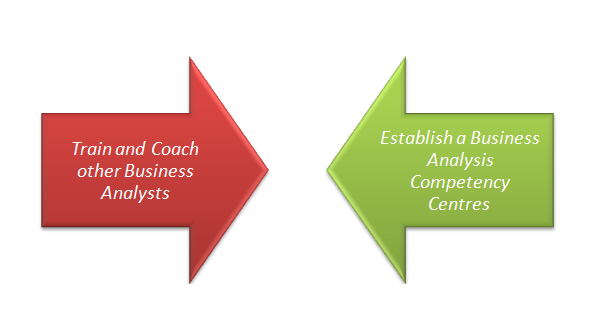Earlier, we covered a topic on the best strategy to prepare for PMI-PBA Certification. In this article, we will discuss why is Business Analysis Certification required to grow in the field of Business Analysis.
Almost in every industry today, we have multiple professional certifications. Finance, Project Management, Supply Chain, Information Technology, etc., are just a few to list from a broad range of professions that needs voluntary and mandatory certification.
The main reason that the certifications have found its way in almost every industry is that it helps to make progress in the career. The certification allows managers to evaluate potential recruits, assess job performance, finalize contractors, sell services, and encourage employees to enrich their skills and knowledge. Certification showcases the competency of individuals, reiterates their commitment to the profession, and helps them with job progression. Thus, there has been an explosive growth in professional certifications.
Why Certification for Business Analysts?
To meet the growing demands of the global market, in the field of business analysis, there are various certification programs available in the market. The certification programs in business analysis are mainly focused on enhancing the multilevel competencies of BA professionals to improve their knowledge and skills. A professional certification helps business analysis professionals to gather intelligence, get access to the tools and resources required, not only to deliver a project in time, scope, and budget but also contribute to the success of the entire business.
Certified BAs are Trained in the Best Business Analysis Practices
To become a certified Business Analyst requires more than passing a certification exam. A candidate has to first qualify for the exam before applying for it. There is a specified eligibility criterion for the certification that prepares a candidate for the business analyst role. First of all, certification requires a certain number of professional development hours of training on business analysis topics that are aligned with the standards of the certification bodies. It provides the training in industry-recognized standards of business analysis.
Be A Certified Business Analyst Today! At Whizlabs, We Provide Both Training Options:
What does Certified BAs Bring to the Table?
- Dedication to Profession
- Adhering to the Standards of Profession
- Continuing Education
- Widely Recognized Certification across the Globe
- Thoroughly Tested for their Skills & Knowledge

Benefits of having a Certified BA in the Organization
The certification requires candidates to fulfill certain hours of documented business analysis work experience. In those hours, there must be at least certain hours in different domains across business analysis and project management. It shows that the certified BAs have in-depth knowledge with great experience across multiple domains.
1. Dedication to Profession
As mentioned at the beginning of this article, BAs should have specific hours of documented business analysis experience. The process of documenting the work experience to apply for the business analyst certification is a daunting process. It is a time-bound and pain-staking process to document everything about the work experience for the certification application and demonstrates the candidate’s dedication to their profession. It also shows their ability to do comprehensive documentation and to remain focused on the tasks for a longer duration. By going through the process of applying for the certification, appearing for the certification exam, and maintaining the credentials, BAs demonstrate their passion for the business analysis profession.
2. Adherence to the Standards of Profession
By going through the process of obtaining the certification and signing a code of conduct, candidates have committed their professional career to the professional standards developed by different bodies like IIBA or PMI and the business analysis community. The candidates put their time and effort to learn these standards and ensure that they follow these standards in their day to day work.
3. Continuing Education
By recertifying their credentials every three years, certified business analysts remain updated with the latest topics and trends in the business analysis profession. By continuing their education and remaining up to date, they showcase their dedication to their profession and thus demonstrate the importance of staying updated in their profession.
4. Holds widely Recognized Certification across the World
The PMI-PBA and IIBA-CBAP certifications have been obtained by thousands of professionals in the last few years of its existence, in several countries and continents. It should be noted – “Business Analyst Certifications has widely been recognized and accepted in the United States, Canada, Australia, New Zealand, India, United Kingdom, Italy, Japan, Romania, Singapore, Switzerland, South Africa, United Arab Emirates, and many other countries”. Job postings that require PMI-PBA and CBAP certifications have significantly increased over the past few years, and we can expect this trend to continue and proliferate in the upcoming years.
5. Thoroughly Tested for their Skills and Knowledge
The knowledge of Business Analyst on standards, techniques, and situations of business analysis is thoroughly tested and once they clear these tests, they receive their certification in Business Analysis. Due to the difficulty level of the certification exam, it might be very challenging to clear this exam specifically for intermediate practitioners. The complexity of the test clearly demonstrates that the successful certified candidates not only have the advanced knowledge of business analysis, but they can also apply this knowledge to the critical business situations.
How Certified Business Analyst Develops Business Competency in the Organization?

Train and Coach other Business Analysts
A certified business Analyst can train and coach other business analysts using the accepted standards of practice. They have experience in many domains; and the tools, techniques, and skills used by them can help in sharing the knowledge of these standards and techniques with others, in the organization.
Establish Business Analysis Competency Centres
Certified business analysts can help the organization to establish a standard level of business analysis service to all business units and Line of Business (LOBs) in the organization. They can also help in the development of a Business Analysis Competency Centre for the organization. It gives the organization unified standards and knowledge for practicing business analysis within the organization. It helps to ensure that the same level of service is provided to all Line of Business (LOBs) within the organization. The Business Analysis competency center also establishes a network within the organization which can be utilized by business analysts to solve the complex business problems faced by the organization.
Conclusion
In conclusion, obtaining a Business Analyst certification does not just showcase the ability of the professional to clear an examination or earn a piece of paper but demonstrates their knowledge and the hands-on experience they gained over many years of hard work. This knowledge and experience of certified Business Analysts can be very well utilized in their respective organizations.
Preparing for Business Analysis Certification? Get Certified Today With Whizlabs PMI-PBA Practice Tests
- Top 20 Questions To Prepare For Certified Kubernetes Administrator Exam - August 16, 2024
- 10 AWS Services to Master for the AWS Developer Associate Exam - August 14, 2024
- Exam Tips for AWS Machine Learning Specialty Certification - August 7, 2024
- Best 15+ AWS Developer Associate hands-on labs in 2024 - July 24, 2024
- Containers vs Virtual Machines: Differences You Should Know - June 24, 2024
- Databricks Launched World’s Most Capable Large Language Model (LLM) - April 26, 2024
- What are the storage options available in Microsoft Azure? - March 14, 2024
- User’s Guide to Getting Started with Google Kubernetes Engine - March 1, 2024

